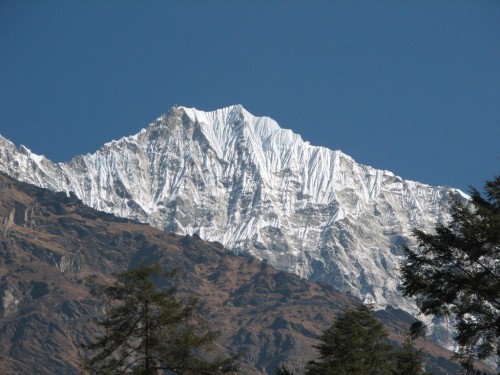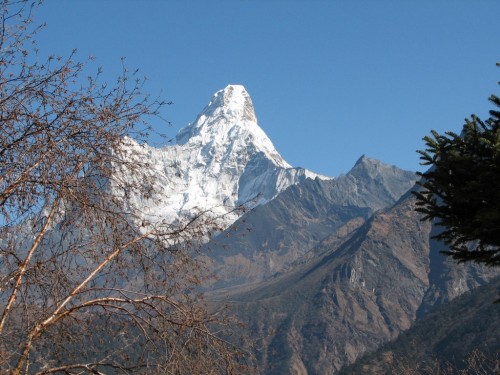The Word Writers Fair, Adelaide, 2010

The Word Writers Fair
I should have promoted this sooner.
Never mind – there’s still time for South Australian writers to attend the first Word Writers Fair in Adelaide tomorrow, 21st August 2010. (Just make sure you vote in the federal elections first!)
This special event is free. All you have to do is rock up at Tabor Adelaide, 181 Goodwood Road, Millswood. There’s plenty of free parking on-site too.
Tabor is where I am doing my Master of Arts in Creative Writing so I know some of the speakers and can highly recommend them. Registration is from 8:30am and the programme kicks off at 9am and goes until 5pm.
It should be a great day with plenty of useful input from the speakers. There will be a bookshop too, selling books written by some of the speakers. You can get them signed on the spot.
For more information, including a programme guide click here.
Good writing – and see you there.
Book review: Himalayan Adventures

.
My supervising lecturer recently gave me this book to read. She thought it could be of some use in the writing of my children’s novel which is also set in Nepal. Himalayan Adventures written by Penny Reeve is a charming little book (of only 96 pages) which deals with various aspects of life in Nepal. Each chapter is a self contained story about an animal, bird or some commonplace aspect of village life. There is little connection between each chapter.
The stories are short and written in a narrative style with minimal dialogue. Each is an object lesson in living the Christian life as seen by the author who served as a health professional with a mission organisation in Nepal. While each story is charming in its own way, I would like to have seen some connection between each chapter, such as the same children appearing in each story. This would have allowed more use of dialogue which would also have improved the book.
This book has not been of much value in writing my own children’s book about Nepal because it is so different from what I am trying to do with my story.
Reference:
- Reeve, Penny 2005, Himalayan Adventures, Christian Focus Publications, Ross-shire, Great Britain.
What I am reading: ‘Braver than the Gurkhas’
Writing a novel: a writer’s journal part 22
What I am reading: “Braver than the Gurkhas” by Sikhar
I chose to read this little know book as background reading for the writing of my novel for children. Like my novel, this book is set in Nepal. It is based on true events but is written as fiction.
On the cover it states that this story is an account of ‘heroism of an oppressed minority fighting for survival.’ It is not an understatement. In the dedication it says it has been written in memory of Bir Bahadur Rai, the first known Nepali martyr for ‘Yesu.’
Nepal in the 1980s was still emerging into the modern world. Christian missionaries had been working in the country since the early 1950s, predominantly as medical staff in clinics and hospitals set up in a range of towns and villages. Nepalis throughout the country were slow to embrace the Christian faith and in the 1980s there was an open government policy forbidding conversion to Christianity. Converts were not only ostracized by their families and the wider community, they were usually imprisoned. Many were tortured for their faith in ‘Yesu’ (Jesus) and some were killed.
This novel traces the fortunes of one family who suffer as a result of these policies. The father of the family is a drunken, wife beating, lazy farmer who actually bashes up the local Christian pastor. One night, while drunk yet again, he decides to burn down the church in his village. Instead of being successful in his aim, he overhears several of the Christians praying for him. This leads to his conversion as a follower of Yesu. His life is quickly transformed from his drunkenness. His daughter notices the change in his life and she too becomes a Christian. Things turn nasty only minutes after her father’s baptism in the local river. He is arrested, tried and later tortured in prison.
This is a fast moving, intriguing story with strongly drawn characters. The plot moves forward with the inevitable ending. The simple village life permeates the story. The attitudes of the villagers are shown clearly, contrasting well with the changes Christianity brings to their culture. Although the ending is sad, there is also hope for the future. The Christian church has continued to grow and estimates are that now about 2% of the population claim to be Christian. Although imprisonment is no longer government policy, in practice there is still widespread opposition and persecution of Christians.
While there are only a few references to faith in my novel, my two main characters show a friendship between a Hindu Nepali boy and the son of an Australian missionary doctor. I have set my story in 2006, a time of great political unrest and turmoil in Nepal. While my reading of Braver than the Gurkhas does not have a direct bearing on my story, I found the reading of this novel gave me a greater understanding of the way the Nepali people think.
Reference:
- Sikhar, 1990, Braver than the Gurkhars, Word Publishing, Milton Keynes.
Further reading:
- Writing a novel: more articles in this series outling how I went about writing my novel for children.

